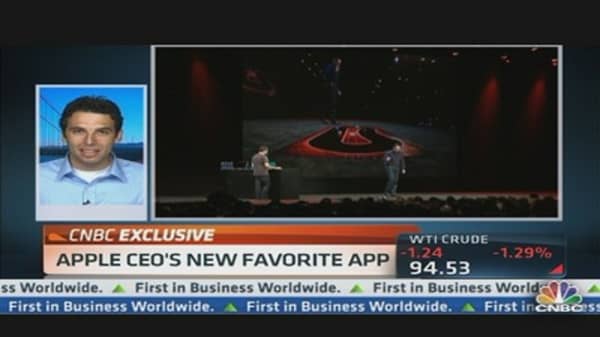Robots will change everything, but first robotics may change the way you think about gaming.
Anki, an artificial intelligence and robotics company, is the maker of the gaming app Anki Drive, which allows users to race intelligent cars around a printed-out track.
Boris Sofman, co-founder and CEO of Anki, showed off his company's technology at Apple's World Wide Developers' Conference on Monday and said the best way to describe the company's product is "as a video game happening in front of you on your living room floor."
Anki will begin selling its product in Apple stores in the fall, but said that intelligent racing cars are just the beginning of how the company plans to use its technology in the future.
(Read More: 10 Hardware Companies Hot With VCs)
"Anki Drive and what we are starting with are only scratching the surface," he said. "We started with entertainment because it's familiar, it's comfortable it's a way to really showcase these technologies and have a huge impact in a space like entertainment, which hasn't really innovated much at all in the last decade."
Anki —which received $50 million in its Series A and B investments from Andreessen Horowitz, Index Ventures and Two Sigma—said it's planning to use its latest round of financing to expand on the first product and work on core technologies to develop new products.
"When you look ahead and think of robotics more broadly—in the sense of having physical things that are intelligent and behave intelligently with respect to their environment— the sky's the limit. There isn't an industry out there that isn't going to be revolutionized by these technologies," Sofman said.
(Read More: New Technologies That Could Change the World)
One of the key things that is making this robotic revolution possible is the advancements in mobile technology. By leveraging smartphone's computing power, people are now able to create much more in terms of hardware than they were previously.
(Read More: Software Out, Hardware Start-Ups In)
"We are having these technologies that are traditionally trapped in labs or going into defense or a space, like agriculture and defense and never before coming into people's everyday lives," Sofman said. "And here we finally have the opportunity because of mobile devices, components that we are able to use, algorithms that we are able to put to work to have them create experiences that were never possible."




